
Koudougou: The Heartbeat of Burkina Faso
Koudougou is a city deeply rooted in the rich cultural tapestry of Burkina Faso. As the third-largest city in the country, it offers a blend of traditional and modern experiences that make it a must-visit destination. Here, you can explore local markets bustling with vibrant colors and sounds, where artisans showcase their handcrafted wares. The city's architecture is a mix of colonial-era buildings and traditional Sudano-Sahelian structures, giving visitors a glimpse into its historical evolution. One of the highlights of Koudougou is its thriving cultural scene. The city is home to numerous festivals that celebrate the diverse heritage of Burkina Faso. The International Art and Craft Fair, known locally as SIAO, is a biannual event that attracts artists and visitors from around the world. Additionally, the city boasts several museums and cultural centers where you can immerse yourself in the local history and traditions. Nature lovers will appreciate the scenic beauty surrounding Koudougou. The nearby Lake Bam offers a serene escape with opportunities for bird watching and picnicking. For those interested in local agriculture, the fertile plains around Koudougou are dotted with farms and plantations that produce a variety of crops, providing a glimpse into the rural life of Burkina Faso.
Local tips in Koudougou
- Visit the Central Market early in the morning for the freshest produce and unique local crafts.
- Attend the International Art and Craft Fair if your visit coincides with the event for an unforgettable cultural experience.
- Hire a local guide to explore the historical sites and learn more about their significance.
- Don't miss the opportunity to taste traditional Burkinabé dishes at local restaurants.
- Bring cash as many local vendors and smaller establishments do not accept credit cards.
Koudougou: The Heartbeat of Burkina Faso
Koudougou is a city deeply rooted in the rich cultural tapestry of Burkina Faso. As the third-largest city in the country, it offers a blend of traditional and modern experiences that make it a must-visit destination. Here, you can explore local markets bustling with vibrant colors and sounds, where artisans showcase their handcrafted wares. The city's architecture is a mix of colonial-era buildings and traditional Sudano-Sahelian structures, giving visitors a glimpse into its historical evolution. One of the highlights of Koudougou is its thriving cultural scene. The city is home to numerous festivals that celebrate the diverse heritage of Burkina Faso. The International Art and Craft Fair, known locally as SIAO, is a biannual event that attracts artists and visitors from around the world. Additionally, the city boasts several museums and cultural centers where you can immerse yourself in the local history and traditions. Nature lovers will appreciate the scenic beauty surrounding Koudougou. The nearby Lake Bam offers a serene escape with opportunities for bird watching and picnicking. For those interested in local agriculture, the fertile plains around Koudougou are dotted with farms and plantations that produce a variety of crops, providing a glimpse into the rural life of Burkina Faso.
When is the best time to go to Koudougou?
Iconic landmarks you can’t miss
Parc Bangr Weogo
Escape to nature in the heart of Burkina Faso's capital at Parc Bangr Weogo, a green oasis for recreation, education, and relaxation.
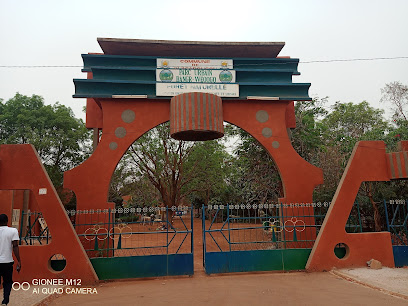
Maison du Peuple
Experience the vibrant artistic pulse of Burkina Faso at Maison du Peuple, a cultural haven in Ouagadougou filled with art, music, and community.
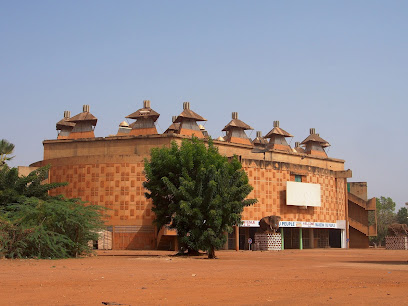
Ouagadougou Cathedral
Discover the enchanting Ouagadougou Cathedral, a stunning architectural marvel and spiritual haven in the heart of Burkina Faso's vibrant capital.
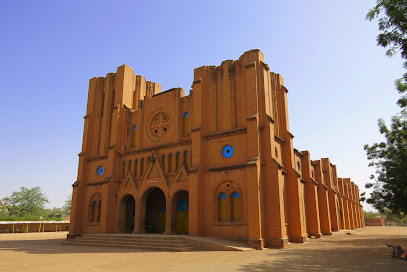
Monument of National Heroes
Explore the Monument of National Heroes in Ouagadougou, a striking tribute to Burkina Faso's freedom fighters and a symbol of national pride.
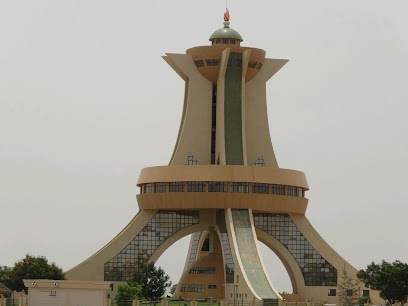
RAMONWENDE HOTEL
Discover authentic Burkinabé hospitality at Ramonwende Hotel in Koudougou—your gateway to local culture and cozy comfort.
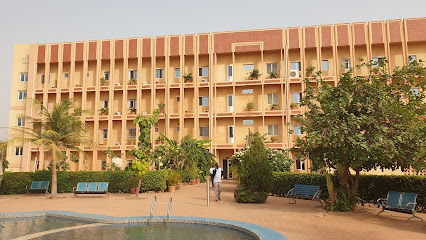
Excellence Hôtel
Experience the comfort and local charm at Excellence Hôtel in Koudougou, the perfect base for your Burkinabé adventure.
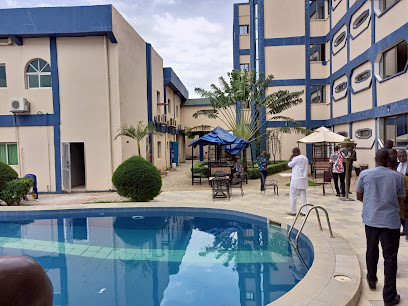
Hotel Splendide
Experience luxury and comfort at Hotel Splendide in Koudougou, your gateway to exploring Burkina Faso's cultural heartland.

KB et frères
Discover the serene beauty and cultural significance of KB et Frères Mosque in Ouagadougou, a remarkable Islamic landmark.
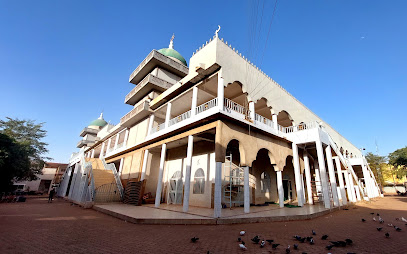
BIBI PARC
Experience fun and excitement at BIBI PARC in Ouagadougou, a premier amusement park featuring thrilling rides and entertaining attractions for all ages.
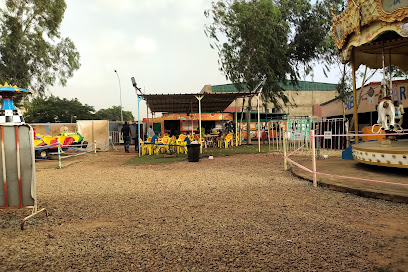
Dima Hotel
Experience comfort and culture at Dima Hotel, your gateway to exploring the vibrant city of Koudougou, Burkina Faso.
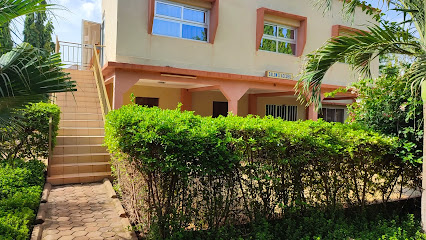
Maasmê Issouka - Palais Du Naaba D'Issouka
Discover the rich cultural heritage of Koudougou at Maasmâ Issouka - Palais Du Naaba D'Issouka, a captivating local history museum showcasing the region's traditions.
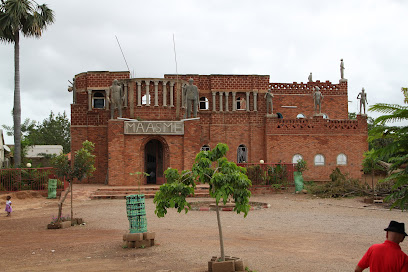
Hotel Pousga
Experience the charm of Koudougou at Hotel Pousga, a comfortable and welcoming hotel in the heart of the city offering modern amenities and local culture.
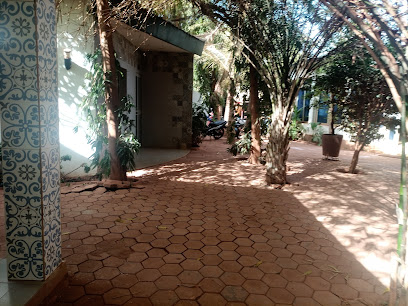
National Museum of Burkina Faso
Discover Burkina Faso's rich cultural heritage through art, history, and traditions at the National Museum in Ouagadougou.
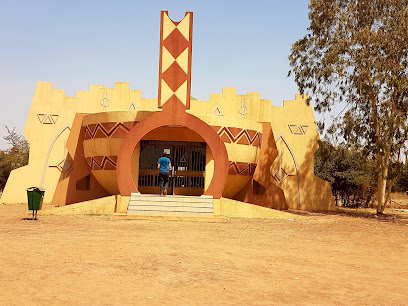
Amphi Jean-Baptiste Somé
Discover the vibrant cultural scene of Koudougou at Amphi Jean-Baptiste Somé, a hub for art, music, and community events in Burkina Faso.
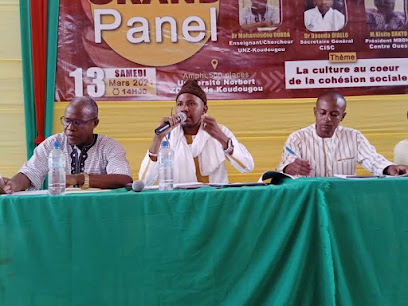
Église de Dapoya
Explore the serene Église de Dapoya in Ouagadougou, a beautiful church reflecting local culture and spirituality.
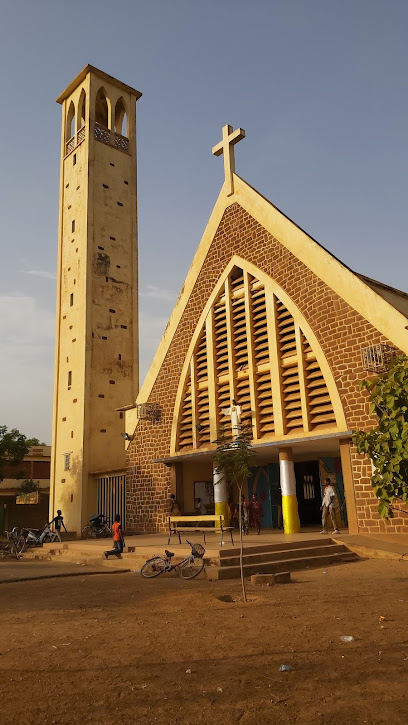
Essential places to dine
Maquis 444 koudougou
Discover authentic Burkinabé cuisine at Maquis 444 Koudougou – where every dish tells a story!
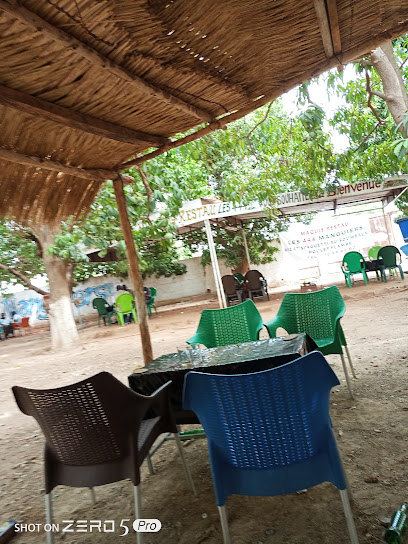
La Consolatrice
Experience authentic Burkinabé cuisine at La Consolatrice in Koudougou—where every dish tells a story.
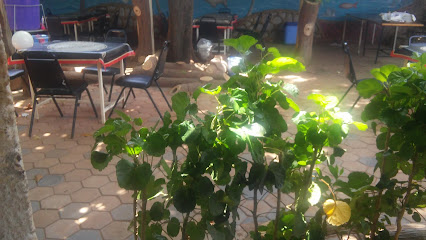
Super Gapal Du Faso
Experience authentic Burkinabé cuisine at Super Gapal Du Faso in Koudougou - where flavor meets tradition in every bite.
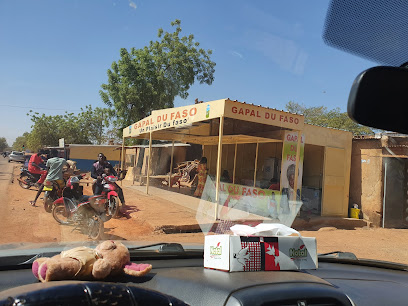
La Réunion
Discover La Réunion's vibrant culinary scene with delicious grilled dishes and unique pizzas amidst breathtaking tropical landscapes.
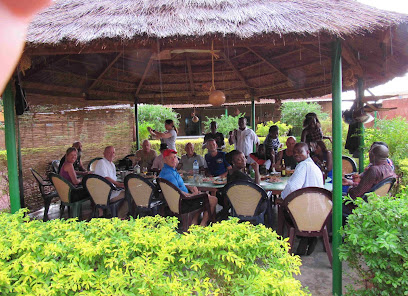
Vivalto Café
Experience the flavors of Koudougou at Vivalto Café – where local cuisine meets welcoming ambiance.
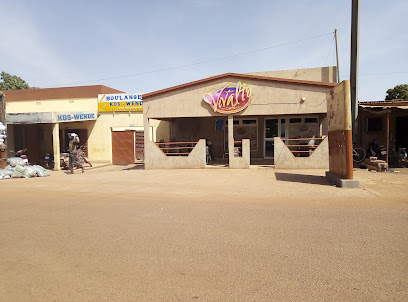
PRESTIGiO Restaurant Café Glacier
Discover the vibrant flavors of Koudougou at PRESTIGiO Restaurant Café Glacier - where local cuisine meets international flair.
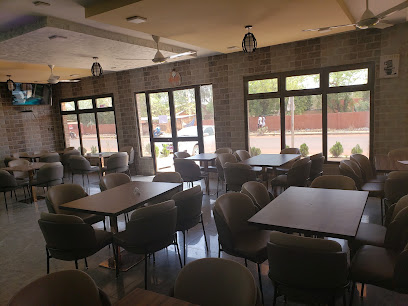
Restaurant Espace BUDU
Experience authentic Burkinabé cuisine at Restaurant Espace BUDU in Koudougou—where flavor meets tradition in a vibrant atmosphere.
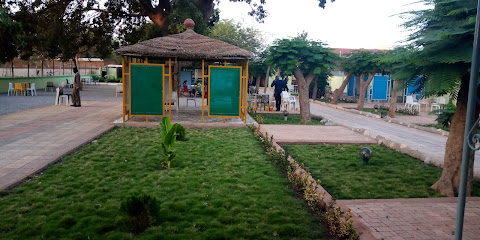
Restaurant Le Crystal
Experience authentic Burkinabé flavors at Restaurant Le Crystal in Koudougou – where every meal tells a story.
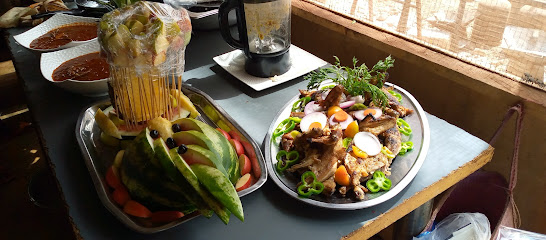
Restaurant Atypique
Discover authentic Burkinabé flavors at Restaurant Atypique in Koudougou - where local cuisine meets warm hospitality.
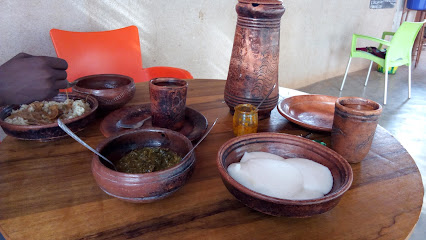
le Glacier
Experience the culinary delights of Burkina Faso at le Glacier in Koudougou – where local flavors meet international cuisine.
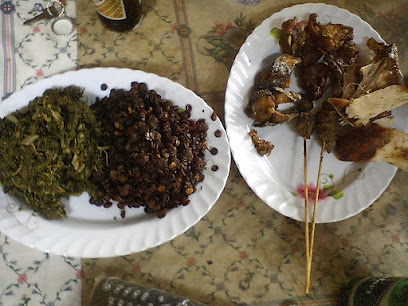
Maquis Le Hamac
Discover the vibrant flavors of Burkina Faso at Maquis Le Hamac, where traditional cuisine meets local hospitality in Koudougou.
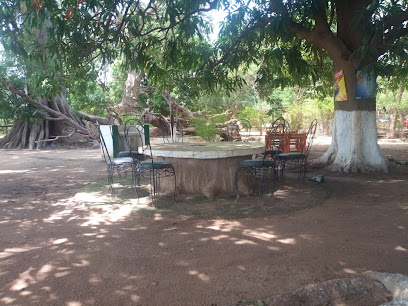
Maquis La maison blanche
Discover authentic Burkinabé cuisine at Maquis La Maison Blanche - a must-visit restaurant in Koudougou for budget-friendly dining.
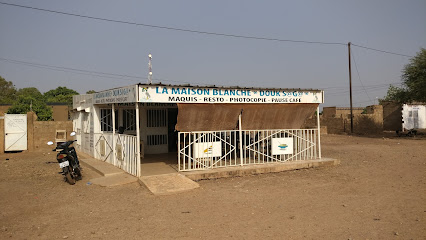
Restaurant le Gout du jour
Experience delightful Western cuisine at Restaurant le Gout du Jour in Koudougou - where local ingredients meet global flavors.
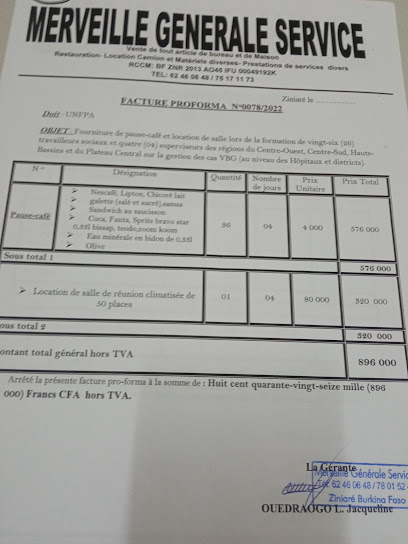
Jardin du Maire Koudougou
Experience authentic Burkinabé flavors at Jardin du Maire Koudougou—where traditional barbecue meets vibrant culture.
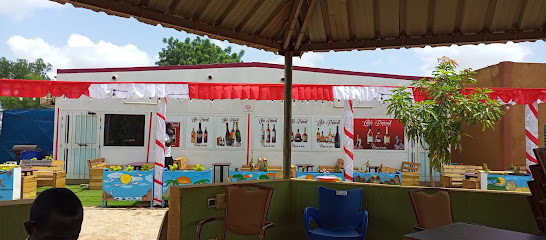
Chez madame soirée
Discover the flavors of Burkina Faso at Chez Madame Soirée in Koudougou – where local cuisine meets warm hospitality.
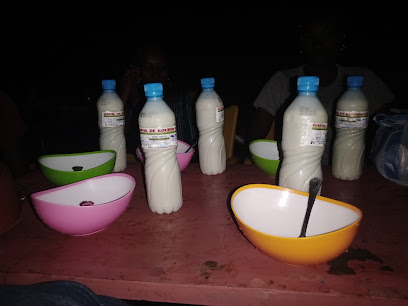
Markets, malls and hidden boutiques
MOUKTELECOM
Explore MOUKTELECOM, Koudougou's premier shopping mall, where local culture meets vibrant shopping and delightful dining options.
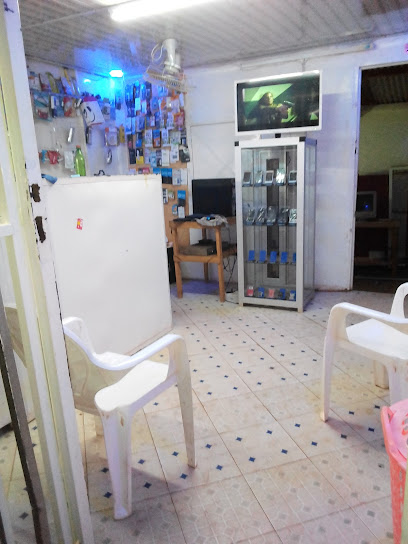
Gourou prêt à porter
Gourou Prêt à Porter in Koudougou offers a unique fusion of contemporary fashion and local craftsmanship, perfect for style-savvy travelers.
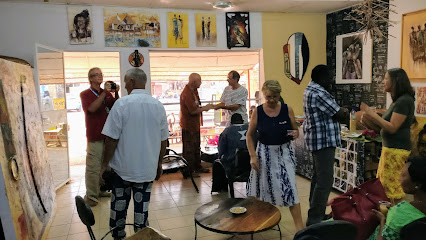
Boutique Wend-Kuuni
Explore the authentic tastes of Burkina Faso at Boutique Wend-Kuuni, your go-to grocery store in Koudougou for local produce and unique ingredients.
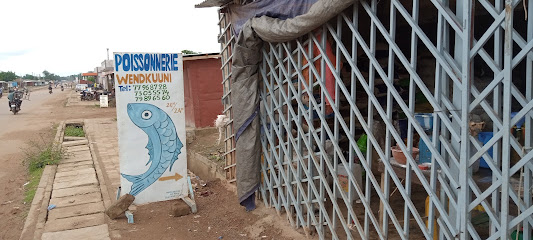
Boutique
Discover the heart of Koudougou at the Boutique Market, where local crafts, fresh produce, and vibrant culture await every traveler.

François 1er boutique Koudougou
Explore François 1er Boutique in Koudougou for a unique blend of traditional craftsmanship and contemporary fashion, perfect for every traveler.
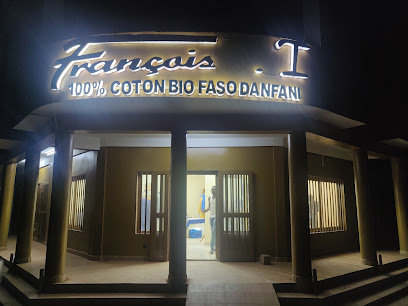
NANKOSEM KOUDOUGOU
Explore the vibrant local culture at NankoSem Koudougou, a premier store for authentic Burkinabé crafts and souvenirs in Koudougou.
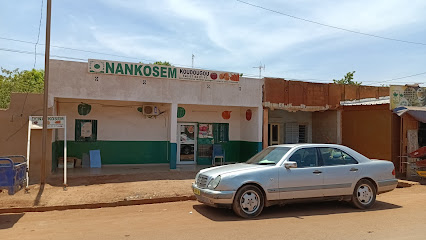
Monsieur le luxe Koudougou
Discover unique fashion pieces that blend modern style with traditional Burkinabé influences at Monsieur le luxe Koudougou.

FFAMILY FASHION
Discover FFAMILY FASHION in Koudougou: Your go-to clothing store for stylish and affordable apparel that reflects local trends.
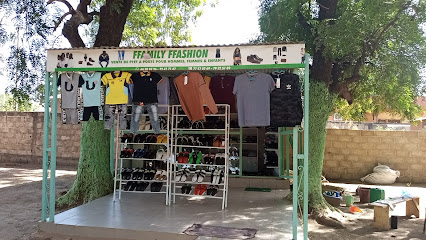
BURKINOPTIQUE « VOIR CLAIR »
Explore Burkinoptique in Koudougou for stylish sunglasses that blend fashion with functionality, perfect for your travels under the African sun.

SONAGESS Koudougou
Experience local culture at SONAGESS, a vibrant store in Koudougou showcasing traditional crafts and everyday essentials.

Boutique Bonkoungou Et Frere
Discover the vibrant culture and unique crafts at Boutique Bonkoungou Et Frere, Koudougou's premier shopping destination.

Tiph Couture et design
Explore Tiph Couture et Design in Koudougou for unique clothing that blends local culture with modern style.
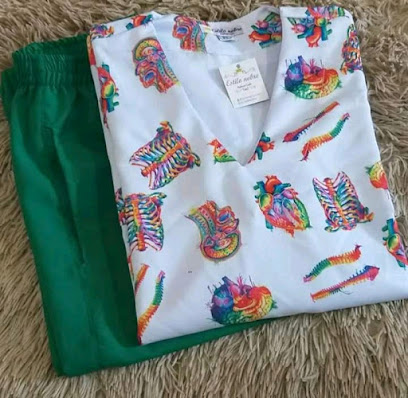
Finesse couture
Explore Finesse Couture in Koudougou for exquisite custom garments crafted by skilled artisans, blending tradition with modern fashion.

Pagnes Wax De Toutes Qualités Chez Mr Yameogo S Paul
Discover the beauty of Burkinabé textiles at Pagnes Wax De Toutes Qualités, a cultural gem in Koudougou, rich with vibrant wax prints and local heritage.
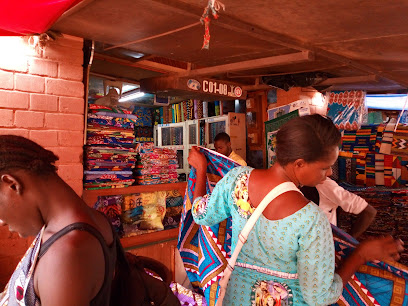
Boutique Bess Sell De Koudougou
Discover the local flavors and vibrant atmosphere at Boutique Bess Sell De Koudougou, a charming supermarket in the heart of Burkina Faso.

Essential bars & hidden hideouts
Le QG
Discover Le QG in Koudougou, a lively bar perfect for enjoying local drinks and vibrant nightlife amidst a warm, welcoming atmosphere.
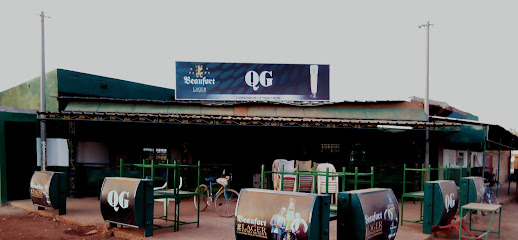
Royaume des Stars Plus
Royaume des Stars Plus: A vibrant bar in Koudougou offering local drinks, lively music, and a friendly atmosphere for an unforgettable nightlife experience.
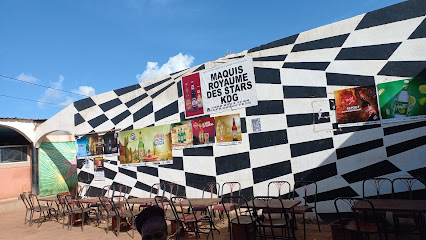
Miami koudougou
Discover the vibrant nightlife of Koudougou at Miami Koudougou, where local culture meets refreshing drinks in a lively atmosphere.
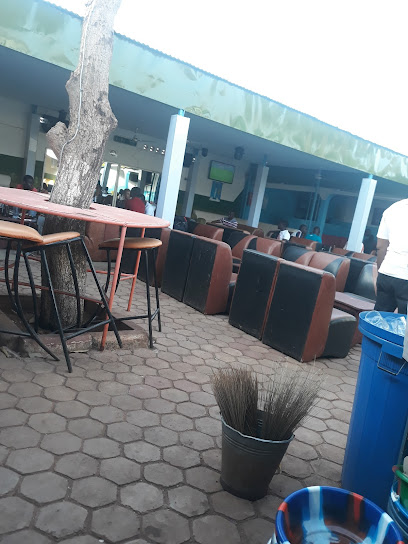
Maquis Andoid Light Koudougou
Discover the lively Maquis Andoid Light, a bar in Koudougou offering local cuisine, drinks, and a friendly atmosphere perfect for tourists.
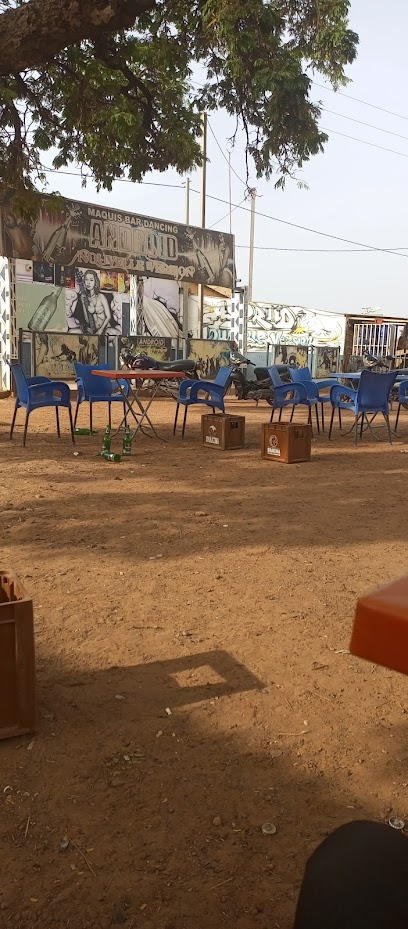
PETROLIER
Discover the vibrant nightlife at PETROLIER, a lively bar in Koudougou offering a unique blend of local culture and refreshing drinks.
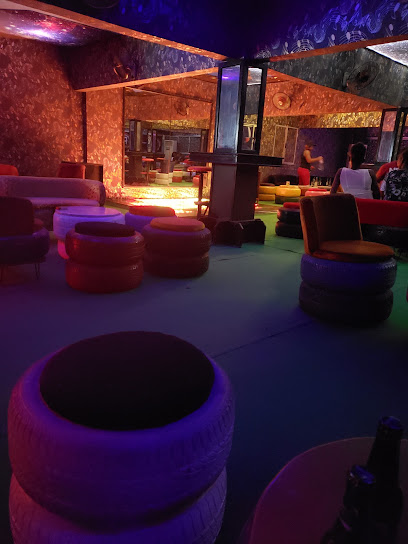
Maquis Facebook koudougou
Immerse yourself in Koudougou's nightlife at Maquis Facebook, a vibrant bar offering refreshing drinks and a lively atmosphere for tourists and locals alike.

ESPLANADE VIP KOUDOUGOU
Unwind at Esplanade VIP Koudougou, where local drinks and vibrant nightlife create unforgettable experiences in the heart of Burkina Faso.
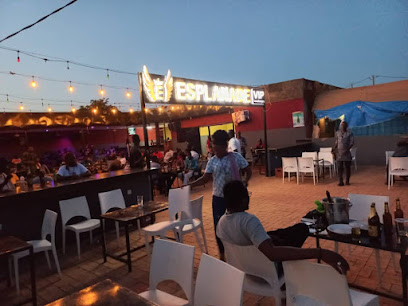
Bar Point Finale
Discover Koudougou's nightlife at Bar Point Finale, where great drinks and a vibrant atmosphere come together for an unforgettable experience.

Vice versa
Discover the vibrant atmosphere of Vice Versa, a lively bar in Koudougou, perfect for unwinding with local drinks and friendly conversations.
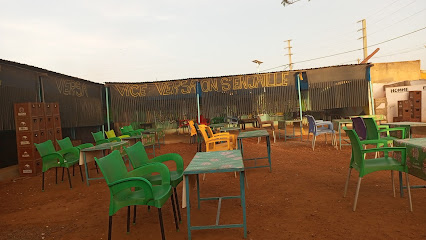
Chez Zongo
Experience the vibrant atmosphere of Chez Zongo, a must-visit bar in Koudougou offering local drinks and lively entertainment.
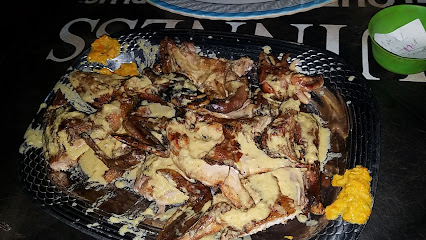
Copacabana de Koudougou
Experience the lively atmosphere and local flavors at Copacabana de Koudougou, a premier bar in the heart of Koudougou.

Coin pouré
Experience the lively ambiance and local culture at Coin Pouré, the must-visit bar in Koudougou, Burkina Faso.

Kremblin koudougou
Discover the vibrant bar scene at Kremblin Koudougou, where local culture and refreshing drinks meet in the heart of Koudougou.

Burkina Faso
Discover the vibrant culture, warm hospitality, and stunning landscapes of Burkina Faso, a jewel of West Africa waiting for your exploration.

Local Phrases
-
- HelloKibarika
[kɪˈbaːrɪka] - GoodbyeSalam
[saˈlaːm] - YesEe
[eː] - NoAyo
[aˈjo] - Please/You're welcomeBarika
[baˈriːka] - Thank youAbarika
[aˈbaːriːka] - Excuse me/SorrySama
[saˈma] - How are you?Ami ne ka?
[aˈmi ne ka] - Fine. And you?Naafi. Ni ne ka?
[ˈnaːfi. ni ne ka] - Do you speak English?Ka fahendé Angilé ka?
[ka faˈheːndeː ˈaŋgileː ka] - I don't understandMi ka fahénde
[mi ka faˈheːnde]
- HelloKibarika
-
- I'd like to see the menu, pleaseMi ka boga meni kibarika
[mi ka ˈboːga ˈmeːni kɪˈbaːrɪka] - I don't eat meatMi ka jina nyama
[mi ka ˈdʒiːna ˈɲaːma] - Cheers!Afiya
[aˈfiːja] - I would like to pay, pleaseMi ka farika, kibarika
[mi ka faˈriːka kɪˈbaːrɪka]
- I'd like to see the menu, pleaseMi ka boga meni kibarika
-
- Help!Biisimilé
[biːsiˈmiːleː] - Go away!Ni saa!
[ni saː] - Call the Police!Ka telepuliisi
[ka teˈleˈpuːliːsi] - Call a doctor!Ka tele doktari
[ka teˈle doˈktaːri] - I'm lostMi saa ka jiri
[mi saː ka ˈdʒiːri] - I'm illMi ka jiniri
[mi ka dʒiˈniːri]
- Help!Biisimilé
-
- I'd like to buy...Mi ka saa...
[mi ka saː] - I'm just lookingMi ka saabaama
[mi ka saˈbaːma] - How much is it?Ni ka ye?
[ni ka je] - That's too expensiveO ye saaba
[o je saˈbaː] - Can you lower the price?Ka ye n yabsa?
[ka je n jaˈbsa]
- I'd like to buy...Mi ka saa...
-
- What time is it?Ni ka wuro
[ni ka ˈwuːro] - It's one o'clockWuro tilma
[ˈwuːro ˈtilma] - Half past (10)Nindi (ti saan)
[ˈnindi (ti saˈaːn)] - MorningZanga
[ˈzaŋga] - AfternoonZigri
[ˈziːgri] - EveningZiiri
[ˈziːri] - YesterdayNa ne sa
[na ne sa] - TodayNi sa
[ni sa] - TomorrowNi ka
[ni ka] - 1Dya
[dja] - 2Bida
[biˈda] - 3Taru
[ˈtaːru] - 4Naani
[ˈnaːni] - 5Ziiri
[ˈziːri] - 6Zaar
[zaːr] - 7Ziri
[ˈziːri] - 8Ngaru
[ˈŋgaːru] - 9Sanga
[ˈsaŋga] - 10Saan
[saˈaːn]
- What time is it?Ni ka wuro
-
- Where's a/the...?N ko ni...?
[n ko ni] - What's the address?Ni kiburi?
[ni kiˈbuːri] - Can you show me (on the map)?Ka ye n sigi (kiburi)?
[ka je n ˈsiːgi (kiˈbuːri)] - When's the next (bus)?Ni ka wuro n boroso?
[ni ka ˈwuːro n boˈroːso] - A ticket (to ....)Bilé (n ....)
[ˈbiːleː (n)]
- Where's a/the...?N ko ni...?
History of Koudougou
-
Koudougou, located in the Boulkiemdé Province of Burkina Faso, has roots stretching back to pre-colonial times. The region was initially inhabited by the Mossi people, who established a series of kingdoms across what is now modern-day Burkina Faso. Koudougou served as an important settlement within the Mossi Empire, which was known for its intricate social structure and powerful cavalry.
-
In the late 19th century, Koudougou came under French colonial rule, along with the rest of Upper Volta (now Burkina Faso). The French introduced new administrative structures and infrastructure developments, including roads and the railway system, significantly impacting the town's growth. Koudougou became an important administrative center during this period, fostering economic and social changes.
-
After Burkina Faso gained independence from France in 1960, Koudougou continued to grow as a key regional hub. The town saw investments in education and healthcare, including the establishment of several schools and a regional hospital. Koudougou's strategic location helped it become a center for trade and agriculture, contributing to its reputation as one of the country's most important cities.
-
Koudougou is renowned for its vibrant cultural scene, particularly its traditional festivals. The Nabasga Festival, held annually, is a highlight, showcasing the rich cultural heritage of the Mossi people. This festival includes traditional music, dance, and ceremonial events, attracting visitors from across the region and beyond.
-
The establishment of the Polytechnic University of Koudougou has positioned the city as a center for higher education and research. The university offers a range of programs in sciences, engineering, and humanities, drawing students from across Burkina Faso and neighboring countries. This academic institution has become a key driver of innovation and development in the region.
-
Koudougou boasts a number of significant architectural and historical landmarks. The Grand Mosque of Koudougou is a notable example, reflecting the town's Islamic heritage. Additionally, the Koudougou Cathedral stands as a testament to the city's diverse religious landscape. These landmarks offer insights into the architectural styles and cultural influences that have shaped Koudougou over the centuries.
Koudougou Essentials
-
Koudougou is located in the west-central part of Burkina Faso. The nearest international airport is Ouagadougou Airport in the capital city, Ouagadougou, approximately 100 kilometers away. From Ouagadougou, you can take a bus or a taxi to Koudougou. The bus journey typically takes around 2 to 3 hours. Alternatively, you can hire a private car or use a shared taxi for a more comfortable and quicker trip.
-
Koudougou is a relatively small city, and many attractions are within walking distance. For longer trips within the city, local taxis and motorbike taxis (known as 'motos') are readily available and affordable. Buses and minibuses connect Koudougou to nearby towns and cities. Renting a car can also be a convenient option if you plan to explore the surrounding areas at your own pace.
-
The official currency in Burkina Faso is the West African CFA franc (XOF). Credit cards are accepted in some hotels, restaurants, and larger shops, but it is advisable to carry cash, especially in smaller establishments and rural areas. ATMs are available in Koudougou, but it is wise to withdraw sufficient cash in Ouagadougou before traveling to ensure you have enough funds.
-
Koudougou is generally a safe destination for tourists, but it is important to take standard precautions. Avoid walking alone at night in unfamiliar areas and keep an eye on your belongings in crowded places. Some neighborhoods may have higher crime rates, so it is best to seek advice from locals or your accommodation on which areas to avoid. Pickpocketing and petty theft can occur, so stay vigilant.
-
In case of emergency, dial 17 for the police, 18 for the fire department, and 10 for medical emergencies. Local police stations and medical facilities are available in Koudougou. It is recommended to have travel insurance that covers medical emergencies. For minor health issues, there are pharmacies in the city where you can purchase over-the-counter medications.
-
Fashion: Do dress modestly, especially when visiting religious sites. Avoid wearing revealing clothing. Religion: Do respect local customs and traditions. Always remove your shoes when entering mosques and other religious sites. Public Transport: Do be respectful and give up your seat to elderly passengers. Don’t eat or drink on public transport. Greetings: Do greet people with a handshake. A slight bow of the head is also a sign of respect. Eating & Drinking: Do try local delicacies and accept food offerings graciously. Don’t refuse hospitality, as it is considered impolite.
-
To experience Koudougou like a local, visit the bustling markets where you can buy fresh produce and traditional goods. Engage with locals, as they are often friendly and willing to share stories about the city's history and culture. Don’t miss visiting the Grand Mosque and the Catholic Cathedral, which are notable landmarks. For a unique experience, try the local 'dolo' beer made from millet, a staple beverage in the region.
Trending Landmark in Koudougou
Nearby Cities to Koudougou
-
Things To Do in Ouagadougou
-
Things To Do in Ziniaré
-
Things To Do in Dédougou
-
Things To Do in Ouahigouya
-
Things To Do in Wa
-
Things To Do in Bobo-Dioulasso
-
Things To Do in Tamale
-
Things To Do in Niamey
-
Things To Do in Sunyani
-
Things To Do in Bamako
-
Things To Do in Kumasi
-
Things To Do in Atakpamé
-
Things To Do in Kpalimé
-
Things To Do in Yamoussoukro
-
Things To Do in Ho




